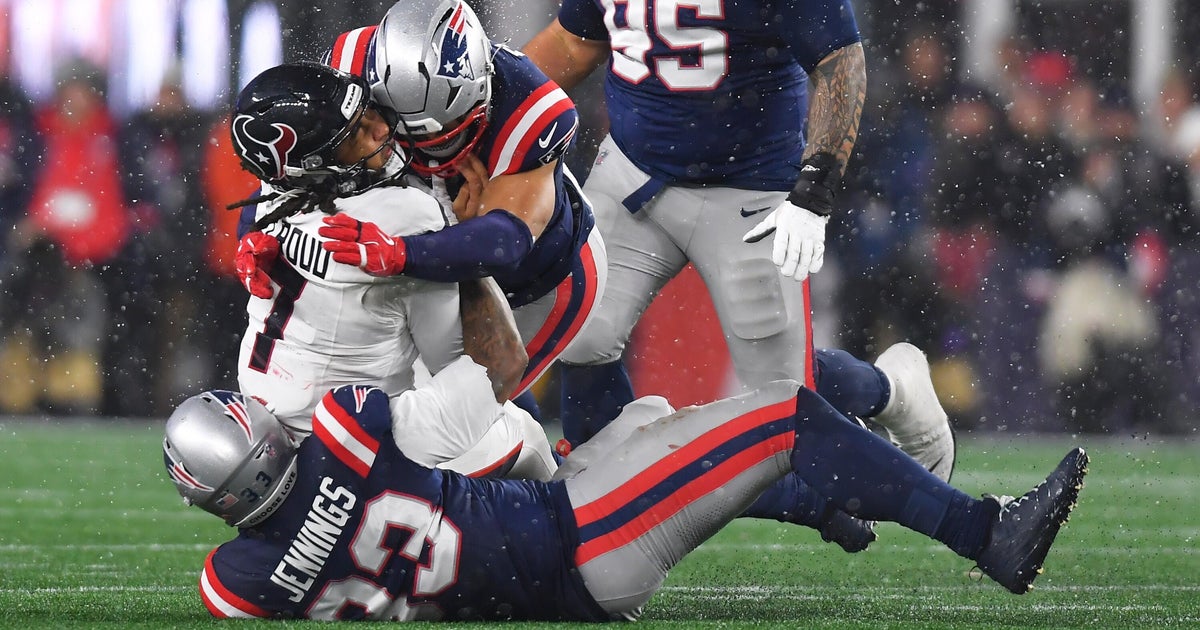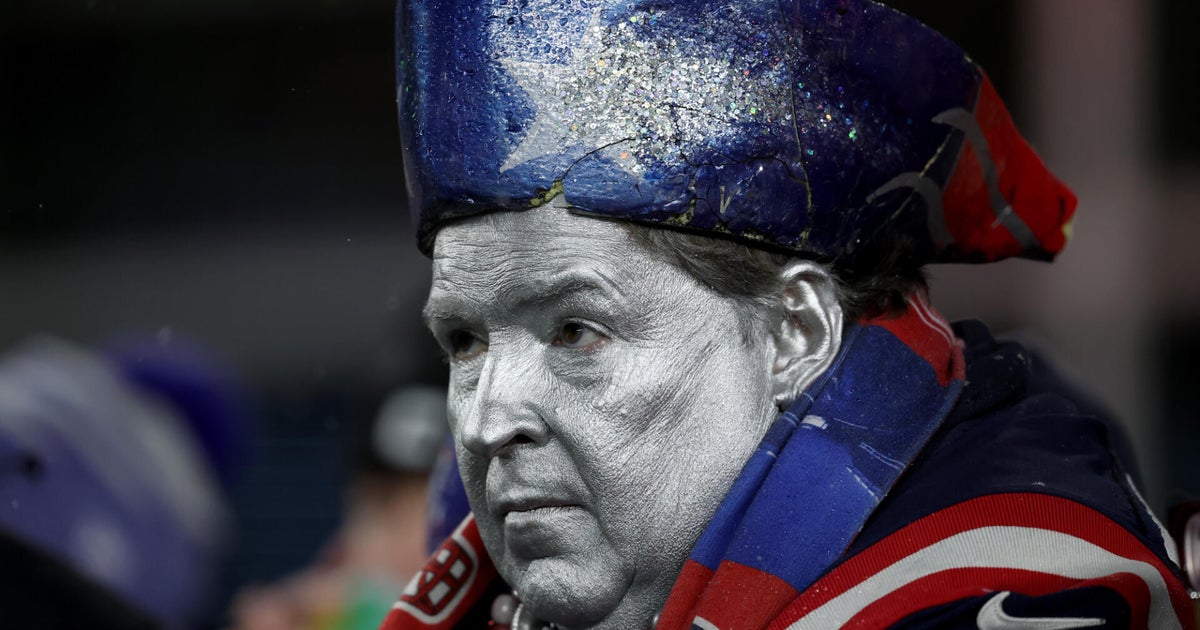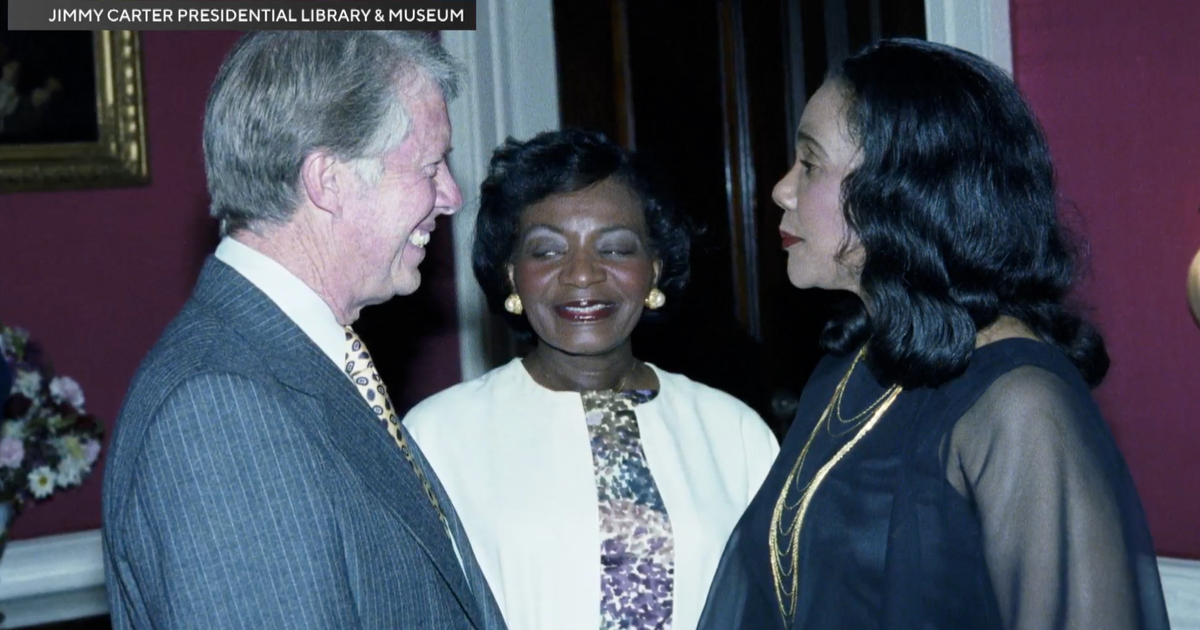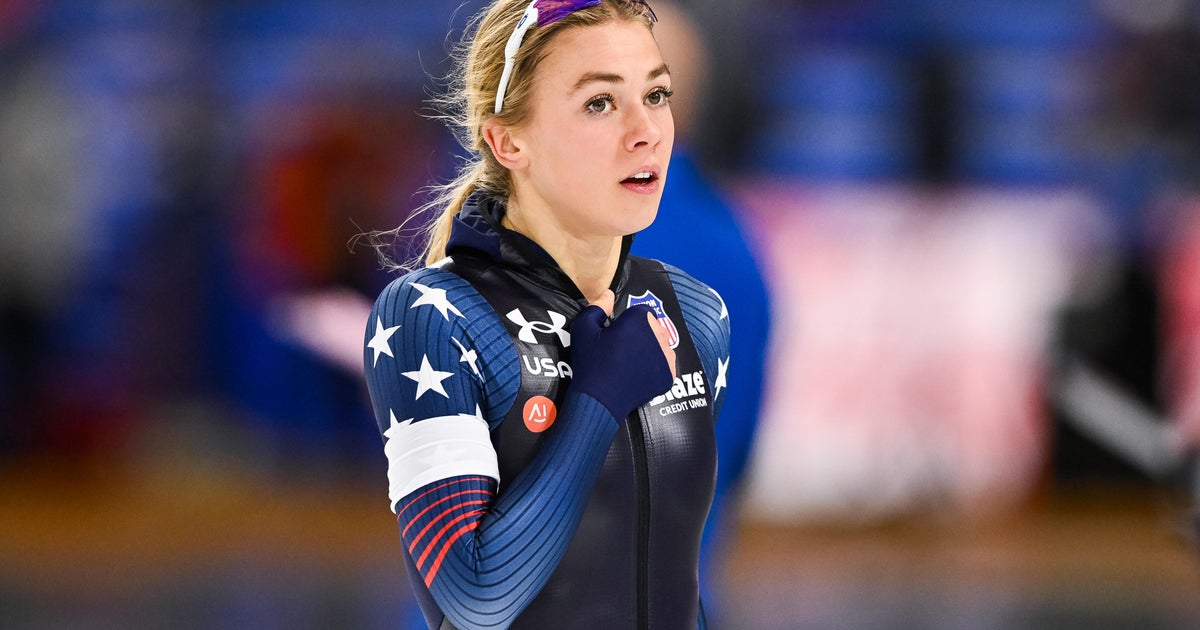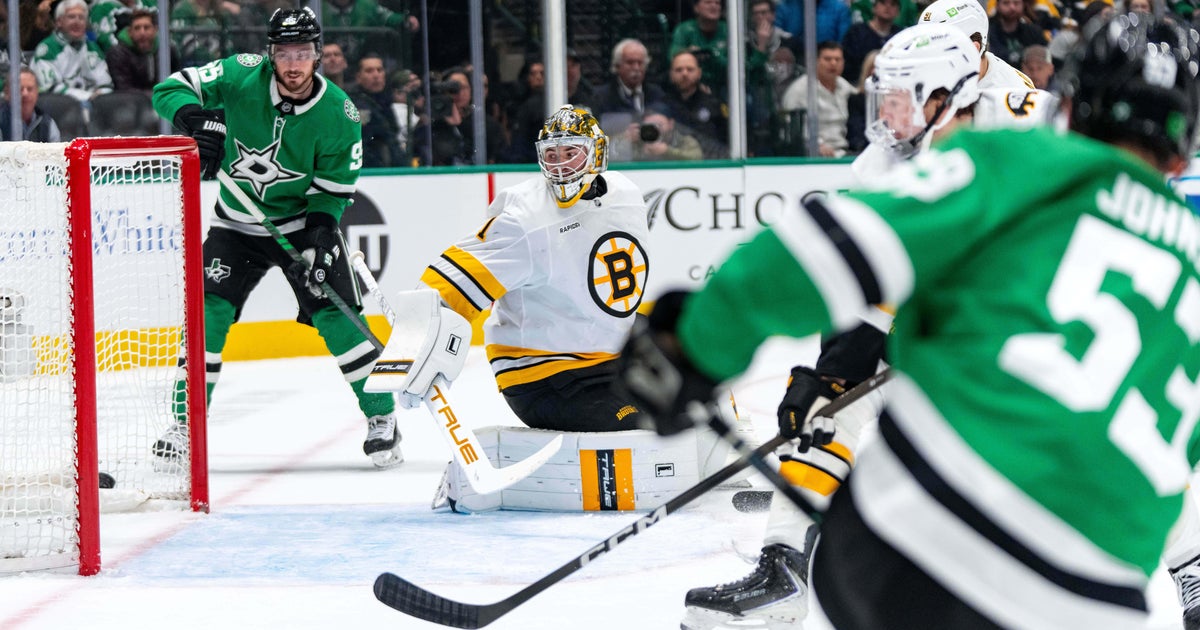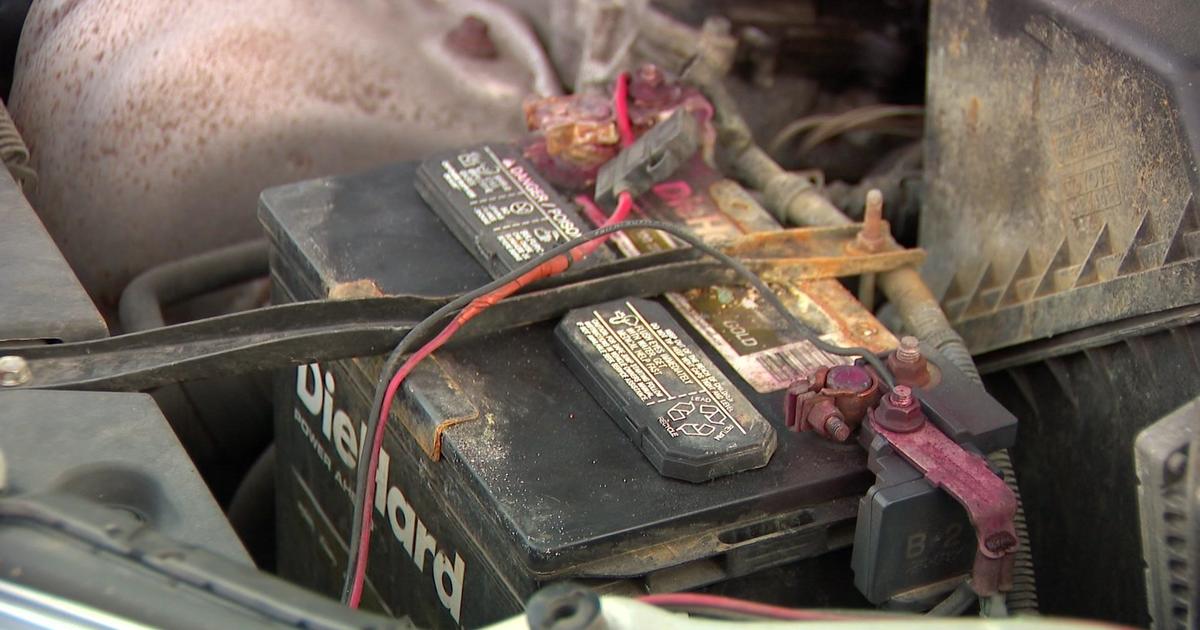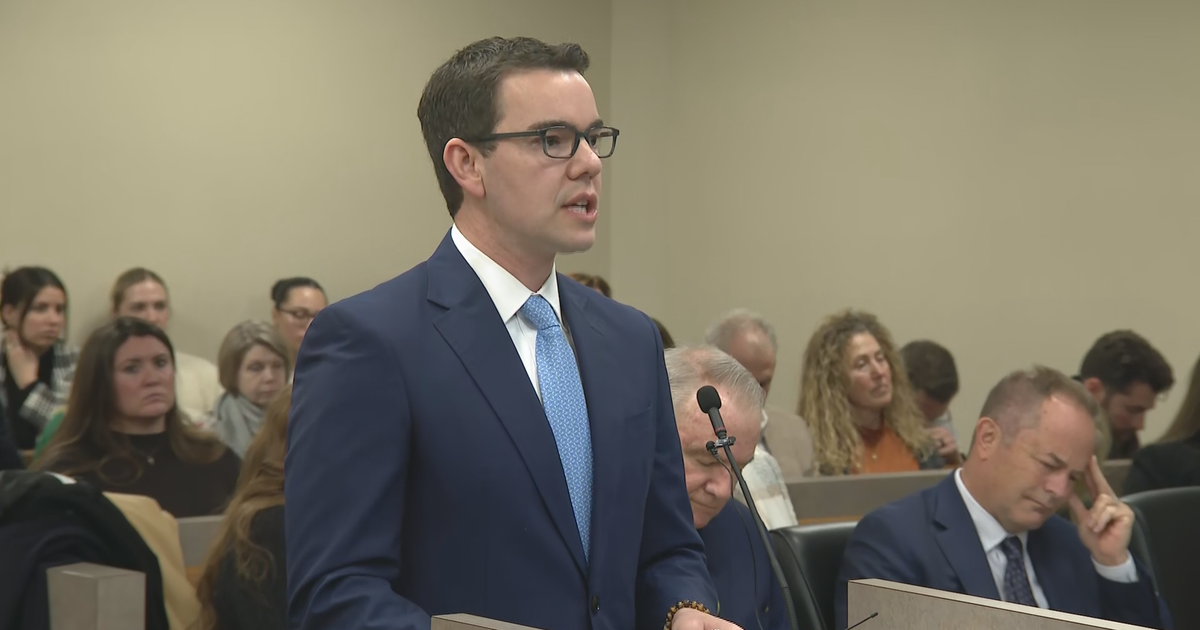Hurley: DeflateGate Judges Didn't Even Realize NFL Was Lying To Them In Court
By Michael Hurley, CBS Boston
BOSTON (CBS) -- As seemingly every headline generated from the appeal hearing at the Second Circuit in New York told you Thursday, it was a good day for the NFL and a bad day for Tom Brady. I said as much myself, because the judges may have tipped their hands as to how they're leaning in this case.
Yet let's not plan the parade route for Roger Goodell to go right down Park Avenue just yet.
For one, Thursday's reaction was entirely about the judges' lines of questioning; it had little to do with the arguments actually made by Paul Clement, who was representing the NFL. And while the judges may not have gone after Clement with the same fervor they reserved for Jeffrey Kessler, they did indeed issue a number of probing questions into the basis of Goodell's arbitration process.
But what struck me the most as someone who's followed every step of his never-ending saga and has read most of the critical documents was the fact that the judges did not seem to notice that the NFL was lying to them.
Surely, neither Judge Robert Katzmann nor Judge Barrington Parker Jr. nor Judge Denny Chin was shy about interrupting either Clement or Kessler when any of them felt a need to ask a question. In fact, neither attorney was able to so much as utter two sentences worth of an opening statement before getting interrupted by a series of questions that really never ceased.
Yet, in the process of explaining to the three-judge panel that Brady proved to not be a credible witness during the investigation and subsequent appeal hearing, Clement restated a lie which Goodell authored himself late last July. And the judges offered no response.
The issue at hand was the series of conversations held between Brady and assistant equipment manager John Jastremski the day after the AFC Championship Game. There was a huge spike in the communications between the two, which included phone calls and a meeting in the quarterbacks' room.
When Goodell issued his ruling to uphold the four-game suspension on July 28, he wrote this on pages 8 and 9:
Mr. Brady testified that he was unable to recall any specifics of discussions [with John Jastremski] and he suggested that their principal subject was the preparation of game balls for the Super Bowl. But the need for such frequent communication beginning on January 19 is difficult to square with the fact that there apparently was no need to communicate by cellphone with Mr. Jastremski or to meet personally with him in the "QB room" during the preceding twenty weeks of the regular season and post-season prior to the AFC Championship Game. ... The sharper contrast between the almost complete absence of communications through the AFC Championship Game and the extraordinary volume of communications during the three days following the AFC Championship Game undermines any suggestion that the communications addressed only preparation of footballs for the Super Bowl rather than the tampering allegations and their anticipated responses to inquiries about the tampering.
And then, in a footnote on page 8:
In response to the question, "Why were you talking to Mr. Jastremski in those two weeks?," Mr. Brady responded, in sum: "I think most of the conversations centered around breaking in the balls [for the Super Bowl]." For reasons noted, I do not fully credit this testimony.
Surely, considering the story was in the media and gaining steam, it would stand to reason that the quarterback would talk to an equipment manager during that time. So, if Brady did indeed tell Goodell that the conversations only focused on game-ball preparation for the Super Bowl, then Brady would indeed appear to be a liar.
However, unfortunately for Goodell, Judge Richard Berman decided to make public the transcript for that very appeal hearing. And in that transcript was this, which Brady said on June 23 in front of Goodell (page 130):
I don't remember exactly what we discussed. But like I said, there was two things that were happening. One was the allegations which we were facing and the second was getting ready for the Super Bowl, which both of those have never happened before. So me talking to him about those things that were unprecedented, you know, he was the person that I would be communicating with.
Brady also told the NFL of his discussions with Jastremski (page 144):
So I think trying to figure out what happened was certainly my concern and trying to figure out, you know, what could be -- possibly could have happened to those balls.
And finally, Lorin Reisner ended his questioning of Brady with this exchange (page 145):
Reisner: And during the text exchanges referenced there on January 19th, this was around the time that you were having telephone calls with John Jastremski as well, correct?
Brady: Yes.
Reisner: And you say that it is possible that you and John Jastremski were discussing the concerns that had been raised about ball deflation levels, right?
Brady: Yes.
Clearly, Brady did not tell the NFL that he had no communication with Jastremski about the controversy that was brewing in the media. Brady clearly stated that he discussed the deflated footballs with Jastremski.
So, when Goodell wrote this in his ruling to uphold the suspension, he was authoring a lie.
And Thursday in court, Clement was repeating that lie to the Judges Katzmann, Parker and Chin.
"[Brady] knew he was there to testify about that. He offered his version of events. It emphasized things like, 'I talked to these individuals who I never talk to the day after the story broke, not because I want to talk about these events and what the story was, but rather to talk about Super Bowl ball preparation," Clement told the judges. "To say all of that was being done to prepare the Super Bowl balls, I think the commissioner found that to simply not be a credible explanation to the conduct."
Instead of raising the issue that this argument was factually deficient, the judges seemed to accept wholly the judgment of Ted Wells and Goodell that Brady was not a credible witness.
"If he had been a more credible witness in the commissioner's eyes, that might also have reduced punishment," Clement said.
Clement later added: "Both Wells and the commissioner determined that the testimony from Mr. Brady was not credible. We're not here to second-guess that. ... [Brady's] in near-constant communication with Mr. Jastremski. The first and only meeting ever in the quarterbacks room. And the explanation for that is they're preparing balls for the Super Bowl."
Again, Brady told the NFL that the discussions included ball preparation for the Super Bowl as well as the accusations levied against the team for ball deflation.
Instead of raising the issue that this was not true, Judge Chin asked a question about the player uniform policy.
Clement made it a regular point to diminish Brady's credibility, saying, "He offered his version of events and the commissioner didn't find that testimony credible."
Clement made this statement while parroting a lie from that very same commissioner who determined Brady to be a liar.
Are you seeing the issue here? Because the judges on Thursday were not.
This may not seem like the single most significant issue in the case, but remember, this is exactly what ended up getting the Ray Rice indefinite suspension overturned. Judge Barbara Jones ruled that despite Goodell's insistence that Rice was not forthright and honest in his meeting with the commissioner about what took place inside that casino elevator, Rice indeed had been truthful when discussing the incident with Goodell.
Interestingly, Goodell took no legible notes during that meeting with Rice. However, the notes of NFLPA attorney Heather McPhee stated clearly what Rice told the commissioner: "And I hit her, and then she fell and hit her head on the railing."
Goodell's notes, according to Judge Jones, were "not detailed and [did] not contain any verbatim quotes of what Rice said happened in the elevator."
Judge Jones ultimately ruled, "Based on all of the evidence, I conclude that Rice said, 'hit,' that he did not say 'knocked herself out,' and that he did not mislead the League in the June 16 meeting. ... Rice did not lie or mislead the NFL at the June 16 meeting. ... I have found that Rice did not mislead the Commissioner. ... Because Rice did not mislead the Commissioner and because there were no new facts on which the Commissioner could base his increased suspension, I find that the imposition of the indefinite suspension was arbitrary."
Again, the three judges on Thursday seemed to have zero interest in questioning the judgment of Wells or Goodell in terms of witness credibility. And if that's the case, and if such a blatant disregard for fundamental honesty is going to be allowed, then Thursday could indeed spell trouble for Brady.
Making up a lie in order to make the accused party look guiltier than he already may have looked was a tactic that didn't work out for Goodell in the Rice case. But based on the three judges' inability to pick up on the fact that NFL's lawyer lied directly to their faces numerous times about a key issue on Thursday in New York., it may prove more successful this time around.
You can email Michael Hurley or find him on Twitter @michaelFhurley.
